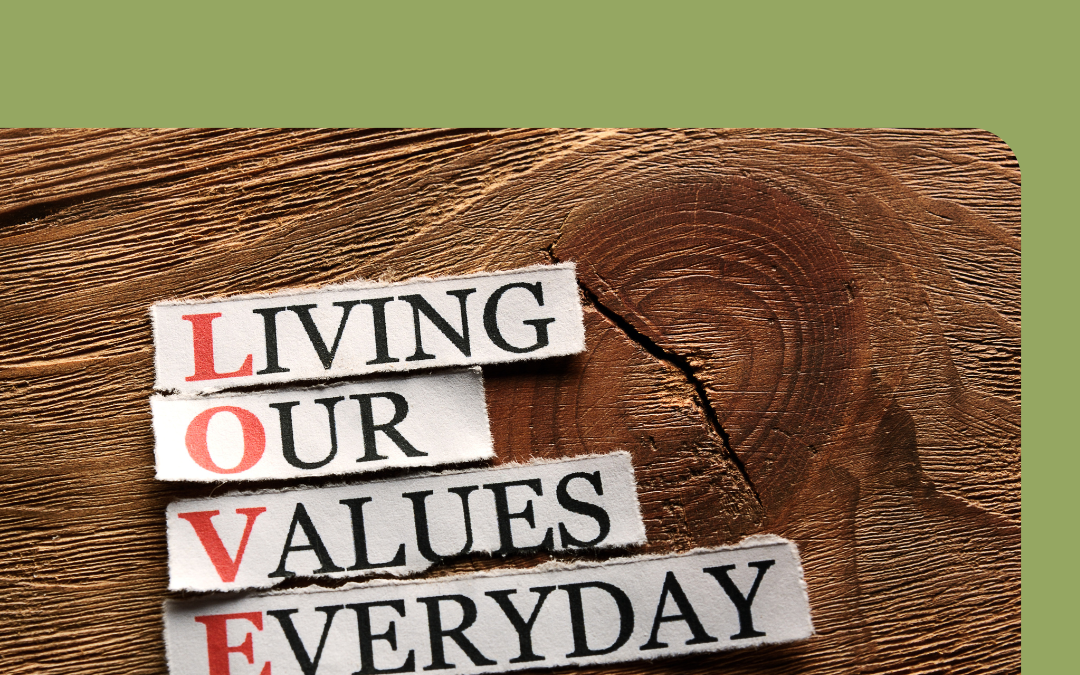Perhaps you looked at the title and thought “Huh? I have no clue!”
Keep reading, this is important, way more than you realise.
Our values are the beliefs we hold dear. They are things we think are important and worthwhile, those invisible ideas that underpin and guide so many of our decisions, both daily and long-term.
Values govern our thoughts, our feelings, our reactions, our responses, our habits, and our view of the world.
We will always work towards our values
Our
thoughts,
feelings,
words,
habits,
and actions
all line up with our values.
Knowing our values – the beliefs that drive us – is important. Incredibly important.
The values we hold affect the way we parent our rangatahi
When there’s pushback from our teenagers we always come back to our values. What we think is right or wrong is the place we will parent from.
Those times when we sit in judgement on how our rangatahi behaves, that’s our values talking.
Knowing our values – at least the top three – is like having a shortcut to your brain.
This is important because knowing where you are coming from puts you in a place of strength because … you know what to believe AND you know why you believe it.
This is the difference between being a reactive parent and a proactive parent. If you have ever noticed a time in your life when there’s one circumstance and a number of different reactions, then you’ve noticed values at work.
There’s a reason why one person isn’t that phased while the other person is.
Underneath the surface, down a bit towards the direction of our heart, lurks a collection of the things we hold dear. The things that are important to us.
There is no right or wrong here. Our values are as individual as we are.
Because they’re invisible, portable, and familiar to us, we don’t pay them much attention. It’s usually only by reflection that we realise how much they impact us through our habits, our words, and our day-to-day interactions.
Values may stay hidden for other reasons too. We don’t want to acknowledge them because maybe we:
- Don’t like them
- Think other people may not like them
- Say they’re not important
Ignore your values at your cost
Our values drive our thoughts, our habits, our words, and our actions. They lie behind the decisions we make or don’t make.
Our values affect our lives. Daily. They are not just what we say. They are also what we do.
When our children were little, our actions were often about what we valued for them. Think back to when they were young, what did you value for their greater good? Was it:
- Good health?
- Being safe?
- Having friends?
- Treating others kindly?
- Staying connected?
Have these values changed now they are tweens, teens or adolescents? And if so, what do these values now look like? Could your adolescent answer that question?
Where do our values come from?
When we’re little it’s about survival. To agree with the people who are immediately responsible for our safety is a sensible choice to make. As a family, we’re instilling values into our children by osmosis. They take our values on board because it keeps them safe.
When we’re a teenager, it’s about pushing back. Our rangatahi are bigger and more capable of looking after themselves. They notice their friends have different values, and they try them out.
The adolescent years are designed to do just that, grow our identities in order to diversify and strengthen our species. The pushback you get as a parent of a rangatahi is biologically based. It’s there to enable them to grow into being their own person, 100% unique.
The thing about values is this: you don’t have to keep them. If you find a value (or two) that doesn’t serve you it’s quite ok to get rid of it, move it along. And replace it with a value that does serve you.
Ditch the judgement talk that’s happening, it’s time to out those lurking values and make them visible. It’s an opportunity to create worthwhile family discussions around the values you use, and the values they use. Find out where the friction points are. Because understanding where your rangatahi are coming from puts you halfway towards knowing how to meet them, guide them, and support them.
How do you know when you’re living your values?
You will know because things line up, and suddenly, you’re in sync with the people you love.
You are all:
? Working together
? On the same page
❤️ Being present with each other
? Taking that moment to acknowledge how grateful you are
You find yourselves with a feeling of oneness.
You’re in sync with your rangatahi.
And it shows because you no longer need to constantly explain yourself.
It feels like you are stepping out together.
You may even say, “We’re on the same page.”
It doesn’t just happen, as if by magic. But when it does happen, it feels magical.
Togetherness is there because you’ve been:
- Listening
- Growing awareness of their point of view
- You can understand their struggles
- While you may not know exactly, 100%, what they are going through, you are getting closer.
When your words count as much as your presence. That’s flow.
How often do we underestimate your impact as parents?
I see you, all those parents who spend so much of your parental journey wondering where you’ve gone wrong, instead of looking at what you’ve done right.
Life gets busy. We all know that.
But you forget.
And you rush on to the next thing. In your haste forgetting about the values you hold dear.
Parenting with an awareness of your values puts us in the driver’s seat when it comes to being the parent who makes a difference in the lives of their rangatahi.
And every rangatahi needs that.
To explore how you can get your family back into togetherness, click here. When you’re in flow and working together, life is so much nicer, easier, peaceful, joyous and worthwhile.

